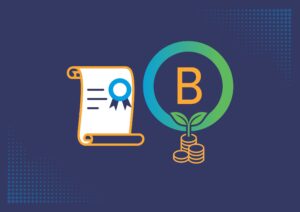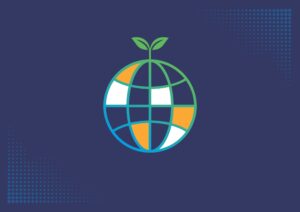At A Glance
- The new B Corp standards replace the points-based system with 7 mandatory Impact Topics.
- Preparation starts with understanding where your business already performs well and where systems or data need to be strengthened.
- A structured gap assessment helps SMEs align early and avoid surprises during certification or recertification.
Introduction
Sustainability has evolved from a voluntary choice to a business expectation. Companies are being asked to prove that their operations create value not just for shareholders, but for employees, communities, and the planet.
That’s why B Corp certification (one of the world’s most trusted frameworks for responsible business) is changing. B Lab, the organization behind B Corp, is introducing a new global standards model that raises the bar for accountability, measurement, and real impact.
For small and midsize enterprises (SMEs), understanding these changes now will make the difference between a smooth certification process and a last-minute scramble.
This guide explains what’s changing in new B Corp standards and outlines a step-by-step approach to prepare your business for the new B Corp assessment.
What’s Changing in the New B Corp Standards
For years, B Corp certification was based on the B Impact Assessment (BIA), a questionnaire that awarded points across five areas: governance, workers, community, environment, and customers. Businesses scoring at least 80 points could apply for certification.
The new standards replace this flexible scoring model with a mandatory, topic-based approach.
Every certified company will need to meet baseline requirements in 7 Impact Topics:
- Purpose and Stakeholder Governance
- Human Rights
- Climate Action
- Fair Wages and Benefits
- Justice, Equity, Diversity, and Inclusion
- Workers’ Well-being
- Environmental Stewardship and Circularity
This means businesses can no longer focus on a few strong areas to compensate for weaker ones. Instead, all companies (large and small) must demonstrate minimum, verifiable performance across each topic.
Why the change matters
B Lab’s goal is to ensure certification reflects real, measurable impact rather than good intentions. The updated standards align more closely with global reporting frameworks (such as the CSRD and UN SDGs), making them more consistent across regions.
For SMEs, the new model may initially seem more demanding, but it provides a clearer roadmap for building strong systems and transparent governance, which is the foundation of lasting credibility.
How SMEs Can Prepare for the New B Corp Assessment
Preparing early gives your business a strategic advantage.
Here’s how to approach readiness step by step.
1. Review your current sustainability systems
Start by reviewing what you already have.
Many SMEs already operate quality, environmental, or health and safety systems (e.g., ISO 9001, ISO 14001, ISO 45001).
These frameworks often cover core areas of the new B Corp standards, such as stakeholder engagement, data tracking, and continuous improvement.
Document existing policies and performance data across key areas like carbon emissions, employee welfare, and supplier screening.
This forms the foundation for your readiness assessment.
2. Identify your priority Impact Topics
The 7 Impact Topics are comprehensive, but not all will require equal attention at first.
For example:
- A technology firm may need to focus more on data ethics and climate impact.
- A construction company may prioritize environmental stewardship and worker well-being.
- A consultancy may concentrate on governance, inclusion, and responsible sourcing.
Rank your topics by relevance and risk. This helps you focus resources where they matter most.
3. Strengthen governance and documentation
Governance and data verification are central to the new B Corp model.
You’ll need clear, written policies and evidence to demonstrate performance
For example:
- Codes of conduct and ethics policies.
- ESG data management or reporting systems.
- Supplier evaluations or sustainability clauses in contracts.
- Evidence of fair-wage reviews or employee well-being initiatives.
Even smaller organizations can meet these requirements by formalizing practices that already exist informally.
4. Engage leadership and employees
B Corp certification is a company-wide commitment. Senior leaders should set the tone by aligning business goals with impact goals. Employees should understand how their roles contribute to areas such as ethics, diversity, or environmental performance.
This cultural alignment will make it easier to collect accurate data, maintain documentation, and sustain progress during recertification.
5. Plan for verification and continuous improvement
Plan for verification and continuous improvement Under the new B Corp standards, B Lab will place greater emphasis on evidence and transparency.
Companies will need to show how they measure, monitor, and improve performance over time, and not just that they have policies in place.
Start now by establishing internal review cycles or management meetings to track sustainability KPIs. This not only supports B Corp readiness but also strengthens performance for other certifications and tenders.
Common Challenges for SMEs
Resource limitations
Smaller companies often have fewer people or systems dedicated to sustainability.
That’s why documenting existing practices (even basic ones) is crucial. It shows intent and structure.
Data collection
The new model requires more quantitative evidence. Set up simple tracking templates for carbon emissions, training hours, or supplier assessments.
Balancing ambition and practicality
The goal isn’t perfection from day one. Start with compliance-level documentation, then build toward measurable impact as your systems mature.
Conclusion
The new B Corp assessment represents a shift from scoring points to proving accountability.
For SMEs, that’s good news: it creates a clearer path for improvement, reduces subjectivity, and rewards real systems and governance.
Preparation is no longer about chasing a number; it’s about embedding sustainability into how your business operates.
The best way to start is with a B Corp assessment. It helps you map where your systems already align with the 7 Impact Topics and where to focus next.
With a clear roadmap, certification becomes less daunting and much more strategic.
How Consultmania Supports EcoVadis Readiness
Consultmania helps SMEs design and strengthen management systems that meet the new B Corp standards.
We guide you through a structured gap assessment that identifies your strengths, improvement areas, and documentation needs.
We then help you:
- Align governance and sustainability practices with B Lab’s new Impact Topics.
- Integrate these requirements into existing ISO or ESG frameworks.
- Develop practical systems for data tracking, reporting, and improvement.
Preparing for certification is about structure, not size, and that’s where our expertise lies.
Contact us to take your first step toward measurable impact and certification success.
FAQs
EcoVadis for SMEs is a global sustainability rating that evaluates a company’s environmental, social, and ethical performance through verified documentation.
Most SMEs complete the assessment within six to eight weeks after collecting and submitting all required evidence.
No, but having ISO systems in place can improve your EcoVadis score because they demonstrate structured management and verified practices.
EcoVadis ratings are valid for 12 months. Annual renewal shows clients that you’re continuously improving.
Many international tenders in these markets require EcoVadis scores as part of supplier evaluation. Certification strengthens your position when working with global partners or multinational clients.



